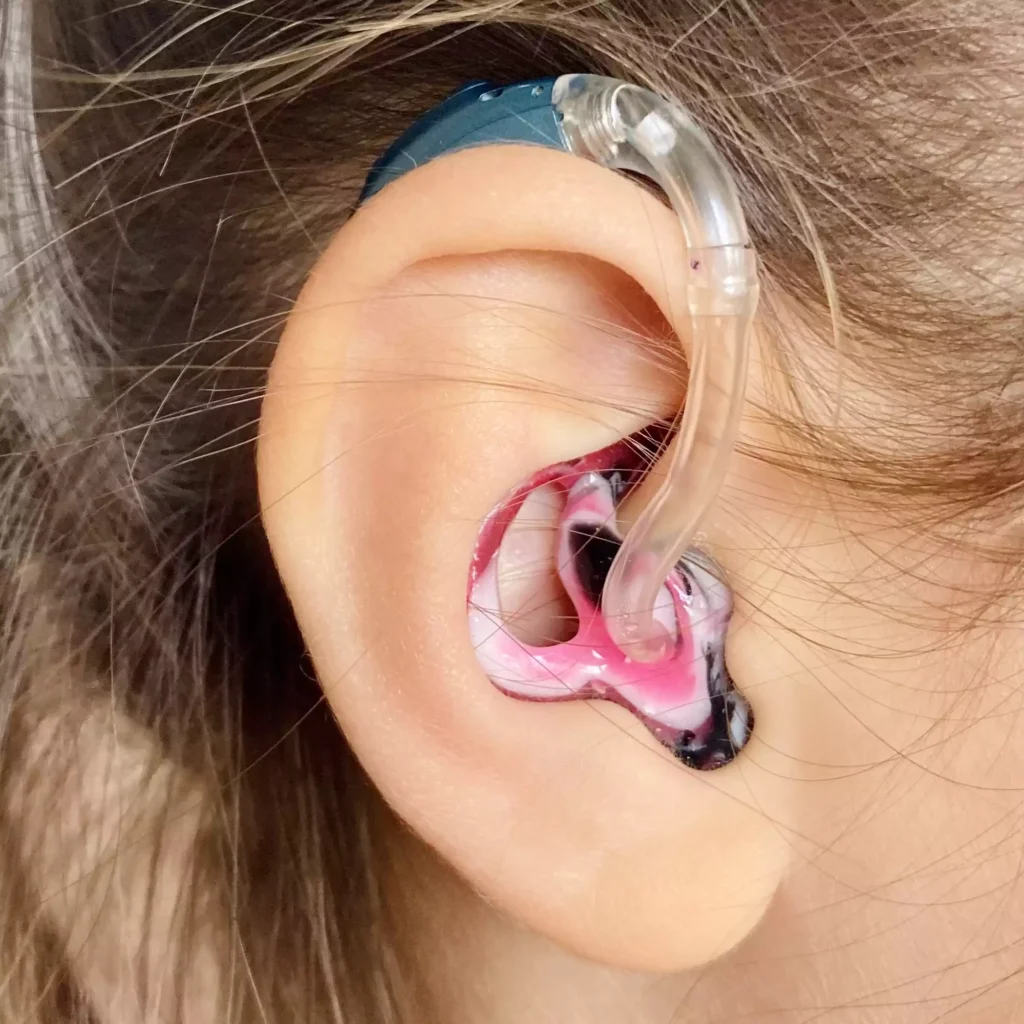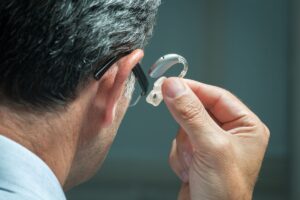
This guide empowers you to address hearing loss with hearing aids. It offers a step-by-step approach from assessment to fitting, equipping you with knowledge to make informed decisions about your auditory health. Explore testing, styles, features, and the importance of professional guidance and ongoing support in maximizing hearing aid benefits.
The Importance Of Testing For Hearing Loss
Hearing loss affects millions globally and profoundly impacts the quality of life. Seeking professional help and undergoing a hearing test are essential steps. Administered by audiologists, these tests identify the type and degree of hearing loss by assessing responses to sounds. The results guide tailored treatment plans, including recommendations for suitable hearing aids.
Different Types Of Hearing Tests
Hearing tests assess auditory health and determine the type and severity of hearing loss. They include pure-tone audiometry, speech audiometry, and tympanometry.
- Pure-tone audiometry involves listening to tones at different frequencies and volumes to plot an audiogram, revealing hearing thresholds and the type of hearing loss.
- Speech audiometry measures speech understanding at various volumes, including speech reception threshold (SRT) and speech discrimination score (SDS), guiding optimal hearing aid settings for clear speech.
- Tympanometry assesses eardrum movement in response to air pressure changes. It identifies middle ear issues like fluid build-up or a perforated eardrum and aids in diagnosing conductive hearing loss.
The Role Of An Audiologist In Fitting Hearing Aids
After choosing the correct hearing aid, the fitting process ensures comfort and optimal performance. An audiologist adjusts the device to match your hearing prescription and your needs. During the fitting, they teach you how to insert, remove, and maintain the hearing aid, helping you adjust to amplified sounds. This process allows for discussion, questions, and sharing of concerns. The audiologist offers ongoing support, scheduling follow-ups to monitor progress and make necessary adjustments.
Factors To Consider When Choosing Hearing Aids

Selecting the right hearing aids can be overwhelming, but considering your needs and several factors can simplify the process:
- Hearing Loss Type and Severity: Different hearing aids target specific hearing loss types (mild, moderate, or severe). Consult an audiologist to find the appropriate level of amplification for your needs.
- Lifestyle and Activities: If you are active or face noisy environments, opt for hearing aids with advanced noise reduction. For music or TV enthusiasts, look for hearing aids with enhanced audio streaming.
- Design and Features: Consider the hearing aid’s style and design, battery life, and compatibility with other devices. An audiologist can guide you through these choices and suggest options based on your preferences and requirements.
The Process Of Fitting Hearing Aids
The fitting process for hearing aids involves several key steps to ensure optimal performance and user satisfaction:
- Selection and verification: The audiologist selects the appropriate hearing aid based on your test results and verifies that it meets the prescribed specifications.
- Physical fitting: The audiologist ensures the hearing aid fits comfortably in your ear by making necessary adjustments to the earmold or earbud’s shape or size.
- Initial programming: Your hearing aid is programmed according to your specific prescription, with amplification levels and settings fine-tuned for optimal speech clarity and sound quality.
- Real-world testing: You wear the hearing aid to assess its performance in real-life situations. Based on your feedback, the audiologist makes any necessary adjustments.
- Education and counseling: Comprehensive instructions are provided on how to use and maintain the hearing aid. You’ll learn proper cleaning techniques, battery replacement, and troubleshooting. Additionally, counseling helps you adjust to amplified sounds and manage expectations.
- Follow-up appointments: Regular follow-up appointments are scheduled to monitor your progress and make adjustments as needed to meet your evolving hearing needs.
Adjusting To Wearing Hearing Aids
Adjusting to wearing hearing aids for the first time can be exciting and challenging. Here are some tips to help you navigate this adjustment period:
- Start in a quiet environment: Wear your hearing aids in a calm and familiar setting to gradually acclimate to the amplified sounds without overwhelming yourself.
- Gradually increase usage: Ease wearing your hearing aids by starting with shorter periods and gradually extending the duration. This approach gives your brain time to adjust and reduces fatigue.
- Practice active listening: Engage in conversations and actively listen to sounds around you to help your brain adapt to the new auditory experience and improve your listening skills.
- Seek support: Don’t hesitate to contact your audiologist if you encounter difficulties or have concerns during the adjustment period. They can provide ongoing support and address any issues you may have.
Maintenance And Care For Hearing Aids
Proper maintenance and care are crucial for ensuring the longevity and optimal performance of your hearing aids. Here are some essential tips to keep in mind:
- Regular cleaning: Use a soft, dry cloth to gently wipe off any dust or debris from the surface of your hearing aids. Avoid using water or cleaning solutions unless recommended by your audiologist.
- Battery inspection: Check your hearing aid batteries regularly to ensure they are functioning correctly. Replace them as needed, following the manufacturer’s instructions.
- Safe storage: When not in use, store your hearing aids in a protective case in a cool, dry place. Avoid exposing them to extreme temperatures or humidity, which can damage the internal components.
- Avoid moisture: Remove your hearing aids before showering, swimming, or participating in water-related activities to prevent exposure to moisture, which can damage the device’s internal components.
- Regular maintenance appointments: Schedule regular visits to your audiologist for maintenance and cleaning. They can help keep your hearing aids in optimal condition and make any necessary adjustments or repairs.
Conclusion: The Benefits Of Hearing Aids And Seeking Professional Help
Hearing aids offer numerous benefits, including improved speech comprehension, enhanced social interaction, and a better overall quality of life for individuals with hearing loss. By undergoing professional testing and following the fitting process, you can unlock the full potential of these devices.






